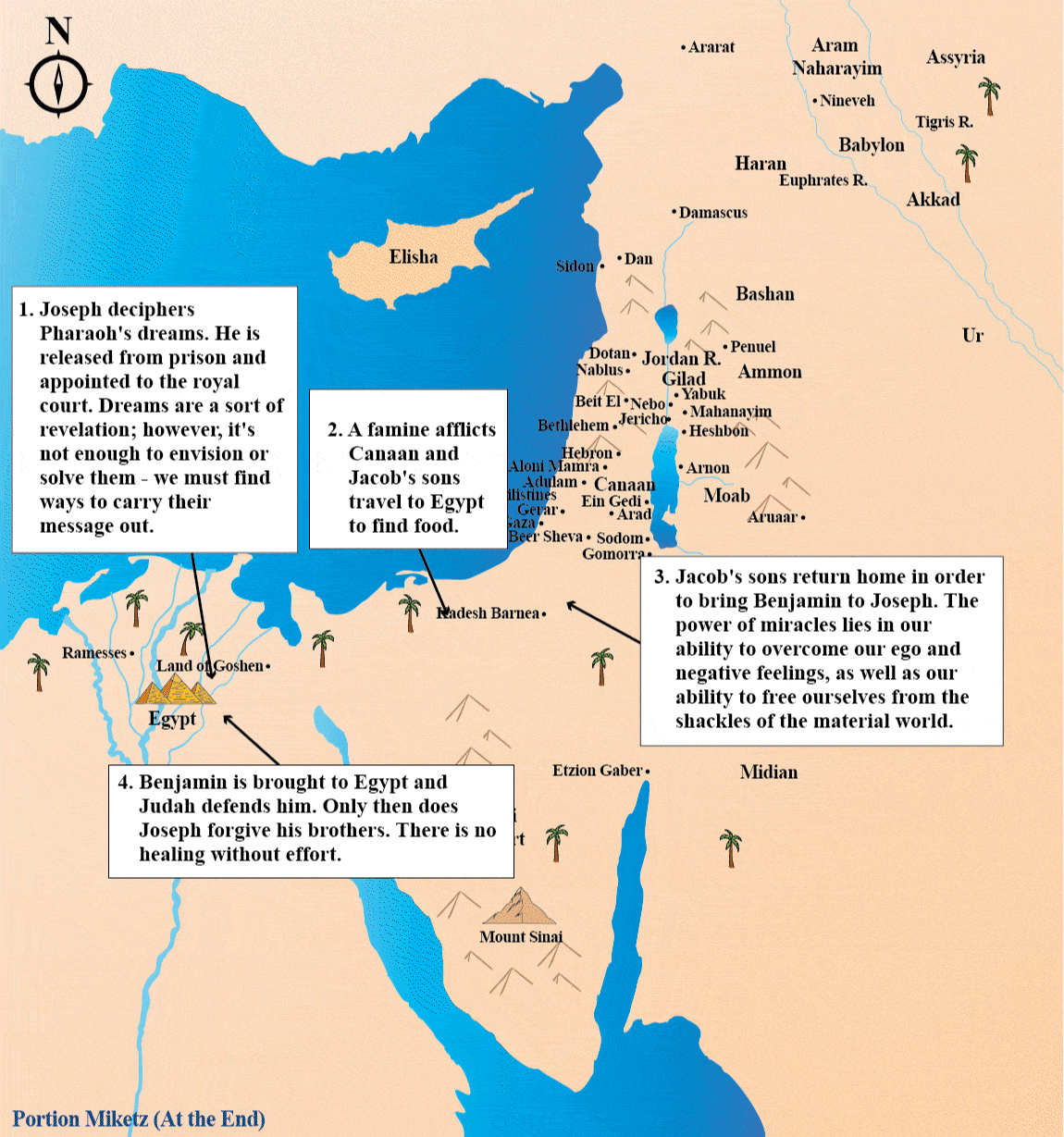
Joseph is appointed second only to Pharaoh
“That Pharaoh dreamed: and, behold, he stood by the river. And, behold, there came up out of the river seven well favoured kine and fatfleshed; and they fed in a meadow. And, behold, seven other kine came up after them out of the river, ill favoured and leanfleshed…And Pharaoh said unto his servants, Can we find such a one as this is, a man in whom the Spirit of God is?” Genesis 41:38
- “A dream is one-sixtieth of prophecy” (Babylonian Talmud, Tractate of Berakhot 57b). For people at certain spiritual levels, a dream can be a sort of revelation. This sentiment is expressed in the Book of Numbers: “The Lord came down in a pillar of cloud, stopped at the entrance of the Tent… and [God] said: ‘When prophets of the Lord arise among you, I make Myself known to them in a vision, I speak with them in a dream'” (Numbers 12:6). Pharaoh understands that Joseph has supernatural abilities and therefore describes him as “a man with the divine spirit” (Genesis 41:38). As a person ascends the spiritual ladder, they reach the level of “divine spirit.” However, it’s not enough for them to study; they must also act – by doing many good deeds and avoiding their evil instincts.
Joseph sends his brothers back to Canaan to bring Benjamin
“But bring your youngest brother unto me; so shall your words be verified, and ye shall not die. And they did so. And they said one to another, We are verily guilty concerning our brother, in that we saw the anguish of his soul, when he besought us, and we would not hear; therefore is this distress come upon us. And Reuben answered them, saying, Spake I not unto you, saying, Do not sin against the child” Genesis 42:20 – 22
- Joseph’s re-encounter with his brothers is a story of healing and remedying the past; it’s a tale of transgression and forgiveness. Jacob’s sons undergo a process of repentance, as prescribed by Maimonides in the Mishneh Torah (Repentance 2): they acknowledge their sins (see Genesis 42:21), express remorse, prove that they will not repeat their actions (by resisting Benjamin’s apprehension at all costs), and proclaim their wrongdoings. In doing so, they lay the foundations for a unified people who will later leave Egypt and settle the land of Israel together, thus bringing closure to the cycle of repentance.
- The message of this story is that there is no healing without toil. Just as Joseph couldn’t move past his defeats without effort, his brothers also couldn’t move on without first traveling to Egypt and taking care of Jacob and Benjamin. At first glance, Joseph’s brothers don’t even recognize him because he is covered in elegant clothes – that is, his external husk. Only after they – and Joseph – correct themselves do they realize that he is their brother.
Pearls of Divine Wisdom: “After”
- Parashat Miketz is read on the Shabbat that falls during Chanukah, the festival of lights and miracles. It connects us to the light and thus enables the light to guide and empower our lives. There is absolute certainty in the light. It desires us and wants to fulfill us – and it is always available to us and within our reach.
- Miracles lie above nature. They infuse nature with light – and when nature is filled with light, miracles can occur.
- Miracles have the power to transform. Internal transformation enables us to overcome our ego, eliminate negative thoughts, and liberate ourselves from the shackles of the material world. We thus regain control of our lives – becoming the cause and not the effect. This transformation recharges our soul and ignites the power of more miracles.
- Dreams offer revelation. But having dreams or solving them is just part of the process – we must also find ways to realize them and see them through. We must learn to live in the dream state and find ways to improve and correct our lives.
- Healing and fulfillment cannot take place without effort. Complete healing requires recognition of sin, atonement, and complete intention to always do better.

Holding on to anger, hurt, or indignation does not bring any blessings; forgiveness, or letting go, does.

